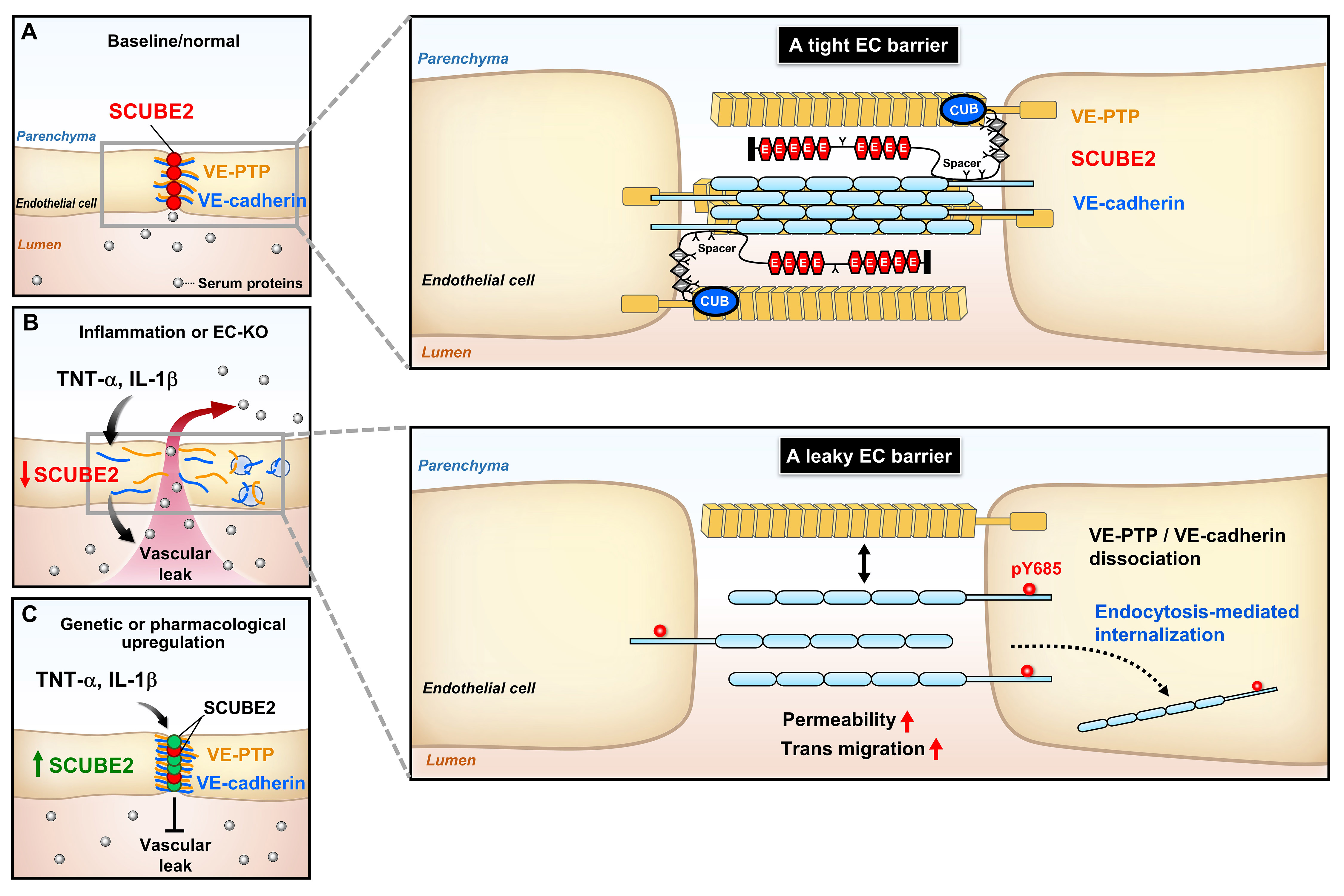Date: 2024-06-27
A collaborative study led by Dr. Ruey-Bing Yang from Academia Sinica and first author Dr. Yuh-Charn Lin from Taipei Medical University has revealed that the membrane protein SCUBE2 (Signal peptide-CUB-epidermal growth factor-like domain-containing protein 2) plays a critical role in maintaining vascular barrier function during inflammation. Conducted in collaboration with Dr. Ya-Jen Chang from Academia Sinica and Professor Chun-Min Lo from National Yang Ming Chiao Tung University, highlights how SCUBE2 stabilizes endothelial cell adheres junctions to prevent vascular leakage. This research, published on June 13, 2024, in Cardiovascular Research, suggests new therapeutic strategies for inflammation-related diseases.
The study demonstrates that SCUBE2 interacts with VE-cadherin and VE-protein tyrosine phosphatase (VE-PTP) in endothelial cells to reduce endothelial barrier dysfunction during inflammation. The research team found that mice with SCUBE2 gene knockout exhibited increased vascular leakage after local injection of histamine or vascular endothelial growth factor and were more susceptible to systemic inflammatory responses induced by acute endotoxin or influenza virus. Conversely, mice overexpressing SCUBE2 showed enhanced protective effects.
In conclusion, the study reveals that SCUBE2 promotes vascular integrity by recruiting VE-PTP to dephosphorylate VE-cadherin and stabilize endothelial cell adheres junctions. Additionally, the data suggest that overexpression or upregulation of SCUBE2 could help prevent vascular leakage in inflammatory diseases. This discovery provides a new potential therapeutic target for a range of inflammation-related human pathologies.
-
Link









 Home
Home

